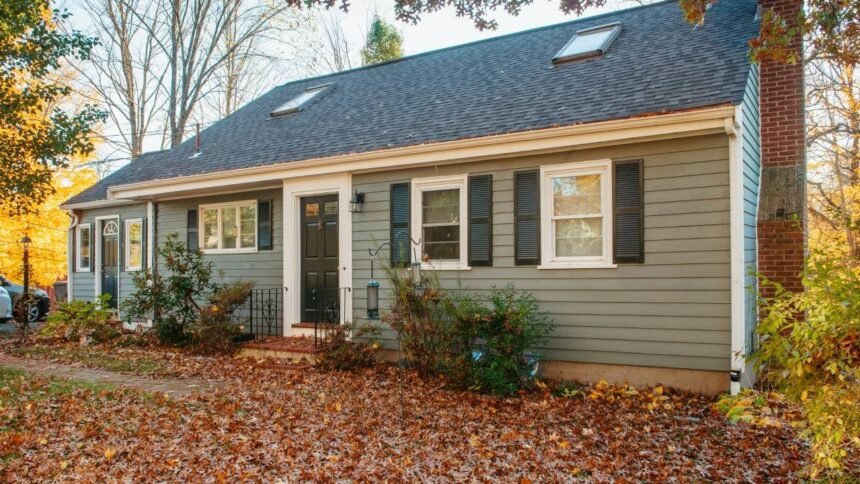Key takeaways
- A zombie mortgage is a second mortgage that resurfaces long after a borrower believes it was discharged or otherwise settled.
- Some borrowers are now receiving notices about zombie mortgages first obtained in the housing bubble — and the issue might continue in the future as more homeowners today take out HELOCs.
- If you’ve been notified of a zombie mortgage, don’t ignore it. Contact an attorney or a HUD housing counselor for help.
Imagine a mortgage debt you thought was dead and buried, only for it to come back to life. That’s the essence of a zombie mortgage: a second mortgage a homeowner thought was settled, but later resurfaces demanding payment.
“Homeowners that come to us are suddenly getting these new statements from a new servicer,” says Audrey Powers Thornton, senior attorney at Housing and Economic Rights Advocates (HERA), a nonprofit legal services organization based in Oakland, California.
“Often, they don’t recognize the servicer because the servicer changes — it’s a new company sending them a bill and they often don’t pay attention to it,” Thornton says. “But the ones that do look at the bill, it has gone from a HELOC that was $95,000 to one that’s $400,000. They are told they’ve got to start making payments, but often they can’t afford it.”
Where did zombie mortgages come from?
Zombie mortgages arose out of so-called piggyback mortgages. In the early 2000s, this type of financing, often referred to as an 80/20 loan, involved taking out one loan for 80 percent of the cost of a home, then another for the remaining 20 percent.
“The borrower who’s buying this house thinks it’s all one transaction,” Thornton says.
These second mortgages came with higher interest rates, or adjustable rates that increased over time. To lower their payments, some homeowners modified the first mortgage, believing the second mortgage was rolled into the first or otherwise settled. Some homeowners say lenders told them not to worry about the second mortgage, or thought the loan was discharged in bankruptcy.
They weren’t.
“During the [2008] financial crisis, housing prices plummeted and the second mortgages went dormant,” says Andrea Bopp Stark, senior attorney at the National Consumer Law Center. “[Lenders] knew if they went through the time and cost of foreclosing on a home, they would get $0 because the first mortgage would be paid off first from any proceeds from the sale.”
Instead, lenders sold the loans to investors, debt buyers and even large corporations — and borrowers never heard from a new servicer about making payments. When the now-defunct Home Affordable Modification Program (HAMP) was established in the wake of the Great Recession, some borrowers mistakenly thought their second mortgages were taken care of.
“There was a lot of buzz about second mortgages being forgiven, waived or discharged,” Stark says. “You don’t hear from [the lender] for 10 years. I think it’s realistic to assume that something happened to this loan and maybe I don’t owe it.”
That all changed in the COVID-19 pandemic, which ushered in record-high home prices. Second mortgages were worthless no more, revived courtesy of the new debt owners.
“Some of these speculators held on to those mortgages until things got better,” says Don Daniel, CEO and founder of The PILL Method for debt payoff. “They were trying to collect not only what the people owed on the mortgages, but all the interest that would have been due over the years.”
Now, thousands of homeowners have received foreclosure notices over what appear to be zombie mortgages, according to an investigation by NPR earlier this year.
The cycle could repeat itself, too, Stark says, as more homeowners today take out home equity lines of credit, or HELOCs — another kind of second mortgage.
“The HELOC lenders don’t want to foreclose, because there is no value in that,” Stark says. “So, maybe 10 to 15 years down the line, they’ll rise again when housing prices increase and they’ll be the zombies of the future. This isn’t a one-time phenomenon.”
Are zombie mortgages legal?
A zombie mortgage is legal in the sense that it’s a valid debt that wasn’t paid or otherwise resolved.
“You signed a piece of paper that says you owe this money and that never goes away,” Daniel says. “Some people may fail to come and collect, but that does not mean you don’t owe money.”
There might be some protections, however. Debt collectors are subject to the Fair Debt Collection Practices Act, which prohibits them from collecting debt past the statute of limitations. In 2023, the Consumer Financial Protection Bureau (CFPB) clarified that this includes collecting on zombie mortgages. In some states, lenders might still be able to collect the debt, but can’t foreclose on the property, according to the CFPB. In other states, the law wipes out the old mortgage from the property entirely.
In general, consumers are protected against unfair practices, as well.
“To just to come out and say, ‘Now you owe triple what you owed when you took out the loan and if you don’t pay, we’re foreclosing and taking your house,’ that is an unfair trade practice and every state has some type of unfair and deceptive trade practice law,” Stark says.
How to find out if you have a zombie mortgage
If you haven’t received a notice from a lender or servicer but believe a zombie mortgage might be lurking, think twice before looking into it.
“If you go searching for it, you could wake it up,” Daniel says. “I don’t like scary movies, but I do know that if you’re around a bunch of zombies, you want to be very, very quiet — because if they hear you, they will eat you.”
How to resolve a zombie mortgage
If you do receive a notice stating you owe money on a zombie mortgage, don’t panic or ignore it. Follow these tips:
- If you know the original lender, contact the servicing department to learn if the second mortgage was settled. Keep in mind, though, that most mortgages are bought and sold multiple times, and it might be hard to track down who currently owns debt.
- Check the loan documents. “Analyze it in terms of the original note and see if the lender is complying with the terms of and the interest rate that they promised,” Thornton says. “Sometimes on the original note, the interest rate should have dropped, but the lender has charged more interest than they should have been charging.”
- Get in touch with your county recorder’s office to see if the mortgage was officially discharged.
- If the property tied to the mortgage was foreclosed, review the settlement to see if it includes mention of a second mortgage.
- Reach out to a HUD housing counselor. You can search for local contacts on the HUD website. “Have them help you connect with this entity that’s writing you, or you can connect directly if you want,” Stark says.
- Work with an attorney who specializes in real estate and mortgage law, ideally one with experience in zombie mortgages.




